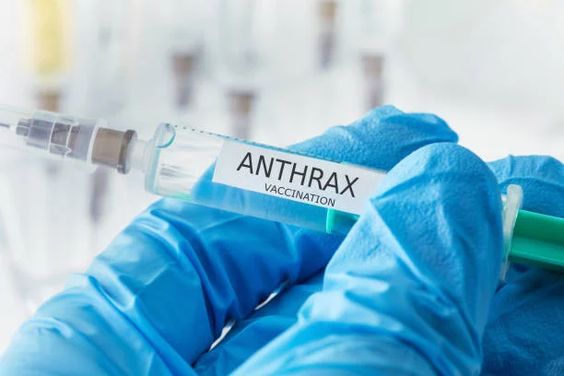Nigeria
Farmers are warned by the Veterinary Institute not to use bogus anthrax vaccines

The Executive Director of the National Veterinary Research Institute (NVRI), Dr. Maryam Muhammad, has cautioned farmers and veterinarians about bogus anthrax vaccine sold in the livestock market.
At the federal department of veterinary and pest control service’s consultative meeting with stakeholders on the prevention and control of anthrax in the nation, held in Nasarawa on Wednesday, Muhammad issued the warning.
According to the NVRI director, phoney anthrax vaccines have been found in certain states across the nation.
“We have retrieved fake anthrax vaccine in livestock markets in Nassarawa, Kaduna, Kwara, and Oyo States,” she said.
She emphasised that government was in control of the issue and advised the farmers to maintain their composure.
She claimed that steps had already been taken to guarantee that everything was in order.
She claims that the first thing we should do is limit people who can provide assistance to individuals in need to directors of veterinary services and accredited services.
“They will receive vaccination training as well as training to identify fake vaccines, and we have reported those who sell fake vaccine to security agencies while still enabling them to carry out their duties.
“But from our side, if you need the vaccine, come through either your state director of veterinary services or an accredited distributor. That way, we can control the availability of these vaccine,” she said.
Mahammad gave the authorities in charge of the cattle market advice to make sure they restrict the vaccine’s availability in the market and make sure they offer light to properly keep real vaccine.
She claimed that the people needed to be made aware that there was no need to panic because the government was in control of the epidemic.
In order to stop the distribution of fake vaccine, she also pledged that they would increase the vaccine’s manufacturing to make it more widely available and eliminate the need for farmers to search for it in places that are not designated for vaccine sales and distribution.
She cautioned veterinarians and farmers to exercise caution when purchasing the vaccine.
There are numerous fraudulent vaccinations on the market, according to Mr. Oluwadare Paul, general secretary of the Nigerian Association of Animal Health and Husbandry Technologists (NAAHHT), an organisation based in Ibadan.
“I’ve bought a lot of fake vaccines, and when I used them on the animals, some of them died, and sometimes the fake vaccine didn’t even work to stop the disease,” he claimed.
Dr. Otto Muhinda, the country team head of the FAO’s Emergency Centre for Transboundary Animal Diseases (ECTAD), also pleaded with farmers not to fear since FAO will be there to help them acquire the vaccine.
He explained that ECTAD was an FAO initiative for the planning and delivery of veterinary assistance to member states in response to the threat of transboundary animal health crises, and that it would ensure that specialists in many sectors would collaborate to address health threats to both humans and animals.
